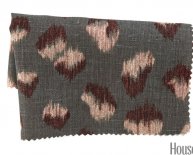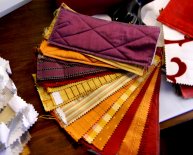
Viscose allergy
 You may need to take extra care when choosing clothing if you have skin problems. Skin problems can be caused by conditions such as eczema or psoriasis, poor circulation, reduced sensation, or allergies to certain chemicals, dyes or perfumes.
You may need to take extra care when choosing clothing if you have skin problems. Skin problems can be caused by conditions such as eczema or psoriasis, poor circulation, reduced sensation, or allergies to certain chemicals, dyes or perfumes.
Washing powder or detergent can also irritate sensitive skin, so make a note of which brands or types have caused a reaction in the past. Many manufacturers make unscented or hypo-allergenic powders and detergents, however this does not always mean they will not cause a reaction. (The National Eczema Society, 2008)
Choosing the right fabric
- If you have sensitive skin or a skin condition, you may know what types of fabrics work best for you. Generally, natural fibres like cotton and silk will feel soft and smooth against your skin. Wool and linen can feel rough and itchy though.
- Fabrics that are stretchy and 'give' when you move are often more comfortable than stiffer fabrics, especially if you sit for long periods.
- Some textile dyes can cause allergies. In the dyeing process the dyes bind to the fibres, and sometimes excess colour can be released and come into contact with skin. Some clothing manufacturers are now using 100% organic, unbleached cotton and silk with natural dyes, which may be more suitable if you have an allergy to textile dyes. (National Allergy Research Centre, 2011)
- The weight of a fabric can also be important to consider, especially if you experience pain when moving or if you have limited strength or endurance. Wearing a few lighter weight garments is likely to be warmer and more comfortable than a heavy coat.
Styles of clothing
- It is likely that you will find loose fitting clothing more comfortable if you have skin problems.
- Try to avoid creases and folds in fabric as they can increase the risk of skin breakdown, especially if you are sitting for long periods, or if you perspire a lot. Rigid seams in jeans, fasteners and pockets should be avoided where there is more pressure.
Perspiration
- Excess perspiration can cause skin irritation. In warmer weather, looser fitting clothes allow air to circulate near the skin and remove moisture and heat.
- Fabrics such as cotton, linen, wool and viscose worn next to your skin absorb perspiration and allow it to escape through the outer clothing.
Footwear
- The chemicals used to tan leather can cause allergic reactions, as can some dyes. Some leather is tanned in different ways and may not cause a reaction. Shoes made from fabric are also an option if you have an allergy.
- Some minor allergies to leathers or dyes can be avoided by choosing shoes with a cotton lining, or by wearing cotton socks.
Socks, stockings and tights
- Socks and stockings with elasticated tops can restrict circulation if they are too tight, and it is important to avoid these if you have a condition such as diabetes. Socks which are very loose and wrinkle easily, or socks with holes, should also be avoided as they can contribute to pressure areas. (Diabetes UK, 2008).
- Lycra is widely used in socks, stockings and tights and may cause problems for some people with sensitive skin. Choosing garments made from 100% cotton may be more suitable.
Further information
Advice last checked: 17 October 2014 All advice is either supported by references (cited in the text) or is based upon peer reviewed professional opinion. Our advice is impartial and not influenced by sponsors or product suppliers listed on the site.

















